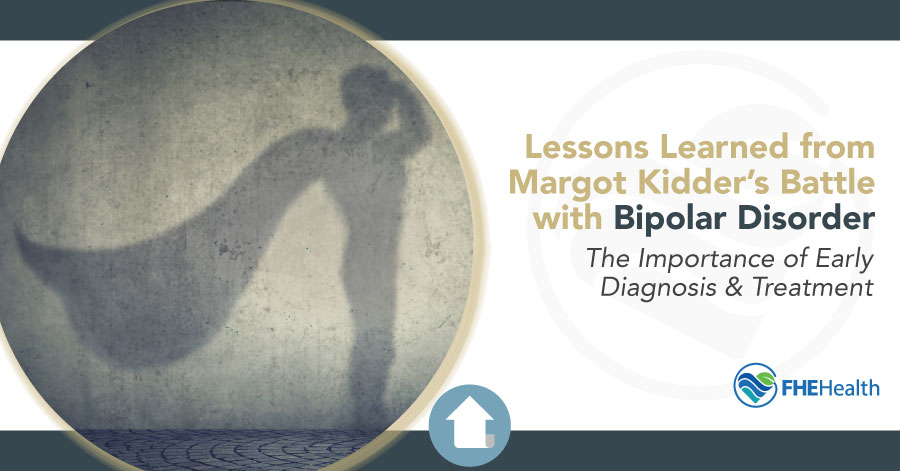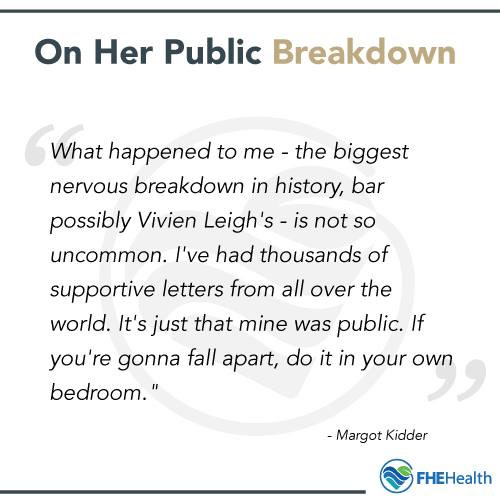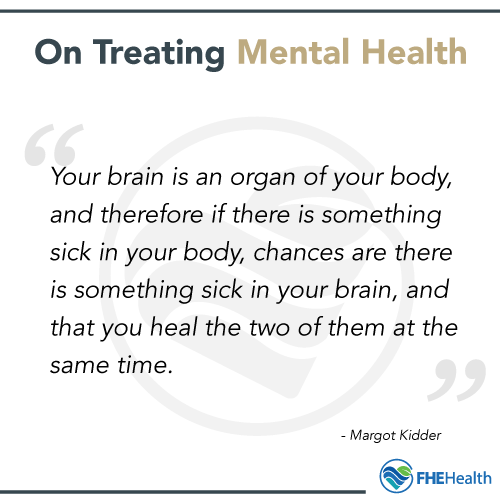
Formative Years
Actress Margot Kidder suffered from mental health problems throughout her short life, specifically bipolar disorder, which doctors failed to diagnose until she was in her early 40s. When she was 14, Kidder tried to commit suicide by overdosing on codeine capsules following a sudden break-up with her boyfriend.
She acted in school plays, and Kidder says acting gave her a chance to “let her real self out” because “no one would ever know it was the true me.” After graduating high school, Kidder attended a university in British Columbia but dropped out before completing one year. She also became pregnant and had an abortion while at university.
Margot Kidder in Hollywood
 During the 1970s, Kidder made over a dozen movies, including the box-office hit “Superman” (1978), the movie that catapulted her to stardom. In 1975, she met writer Thomas McGuane and gave birth to a daughter.
During the 1970s, Kidder made over a dozen movies, including the box-office hit “Superman” (1978), the movie that catapulted her to stardom. In 1975, she met writer Thomas McGuane and gave birth to a daughter.
She married McGuane but divorced him just a couple of years later. Kidder later said she had severe self-esteem issues while married to McGuane and experienced difficulty trying to maintain her film career due to her burgeoning personal and mental health issues.
Kidder’s bipolar disorder (referred to as manic depression in the 1970s) would spiral into an extended manic phase in which she thought McGuane, working in cahoots with the CIA, wanted to kill her. She told friends that they wanted her dead because they thought the book she was writing at that time was so powerful it posed a danger to the world.
Paranoid Delusions and Bipolar Disorder
People in the manic phase of their bipolar disorder may behave as though they have schizophrenia. Symptoms of bipolar disorder mania include:
- Hyperactivity
- Insomnia
- Incoherent speech
- Impaired judgment or inability to make rational decisions
- Paranoid delusions
- Delusions of grandeur, such as believing you are omnipotent, omniscient and incapable of making a bad decision
People in the manic stage of bipolar disorder may not remember or be aware of doing things that disrupt their life or the lives of others. They may steal from others, gamble away large sums of money, buy expensive items they can’t afford or get married after knowing someone only a few days. Unfortunately, bipolar mania (or depression) may last for as long as three months, enough time for the person to seriously disrupt their lives.
 In 1988, Kidder was given an official diagnosis of bipolar disorder. However, she
In 1988, Kidder was given an official diagnosis of bipolar disorder. However, she  Since her crisis, she steadily worked in theatre and film again, making sure she spent enough time on her life rather than just work. She dedicated much of her time to political activism and was no stranger to making hyperbolic statements about leaders. Margot Kidder appeared in films and off-Broadway shows between 2000 and 2015. She was awarded an Emmy for her performance in a children’s show called “R.L. Stine’s The Haunting Hour.” In addition, she no longer had bipolar disorder cycles and was talking openly about her breakdown to various magazines and reporters. Some of her statements were less than ordinary regarding mental health, including “stopping seeing [psychiatrists] was my first step to getting well, she would later be appointed as a spokesperson for an advocacy group that believes in the treatment of mental health without the reliance on medication.
Since her crisis, she steadily worked in theatre and film again, making sure she spent enough time on her life rather than just work. She dedicated much of her time to political activism and was no stranger to making hyperbolic statements about leaders. Margot Kidder appeared in films and off-Broadway shows between 2000 and 2015. She was awarded an Emmy for her performance in a children’s show called “R.L. Stine’s The Haunting Hour.” In addition, she no longer had bipolar disorder cycles and was talking openly about her breakdown to various magazines and reporters. Some of her statements were less than ordinary regarding mental health, including “stopping seeing [psychiatrists] was my first step to getting well, she would later be appointed as a spokesperson for an advocacy group that believes in the treatment of mental health without the reliance on medication.





